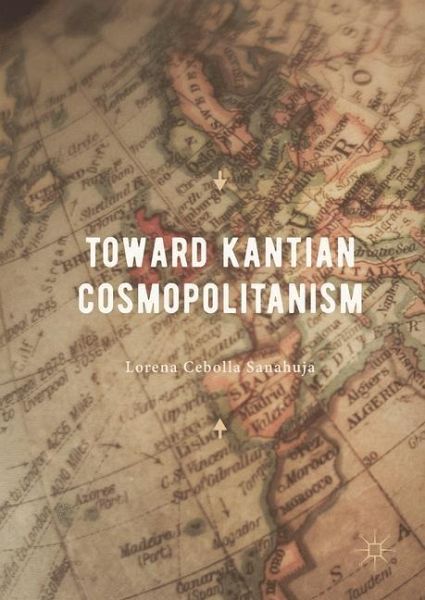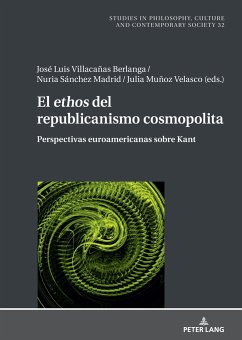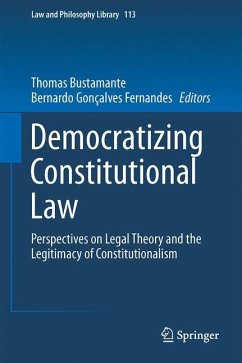
Toward Kantian Cosmopolitanism
Versandkostenfrei!
Versandfertig in 6-10 Tagen
68,99 €
inkl. MwSt.
Weitere Ausgaben:

PAYBACK Punkte
34 °P sammeln!
This book examines the history of cosmopolitanism from its origins in the ancient world up to its use in Kantian political philosophy. Taking the idea of 'common property of the land' as a starting point, the author makes the original case that attention to this concept is needed to properly understand the notion of cosmopolitan citizenship.Offering a reconstruction of cosmopolitanism from an interdisciplinary point of view, Toward Kantian Cosmopolitanism shows how the concept sits at the intersection between philosophical debates, legal realities and the origins of the construction of the dis...
This book examines the history of cosmopolitanism from its origins in the ancient world up to its use in Kantian political philosophy. Taking the idea of 'common property of the land' as a starting point, the author makes the original case that attention to this concept is needed to properly understand the notion of cosmopolitan citizenship.
Offering a reconstruction of cosmopolitanism from an interdisciplinary point of view, Toward Kantian Cosmopolitanism shows how the concept sits at the intersection between philosophical debates, legal realities and the origins of the construction of the discipline of international law. Essential reading for all researchers and advances students of cosmopolitanism, political philosophy and the history of international law, it broadens the current understanding of the concept of cosmopolitanism and reflects on cosmopolitan studies from a historical and philosophical point of view.
Offering a reconstruction of cosmopolitanism from an interdisciplinary point of view, Toward Kantian Cosmopolitanism shows how the concept sits at the intersection between philosophical debates, legal realities and the origins of the construction of the discipline of international law. Essential reading for all researchers and advances students of cosmopolitanism, political philosophy and the history of international law, it broadens the current understanding of the concept of cosmopolitanism and reflects on cosmopolitan studies from a historical and philosophical point of view.














